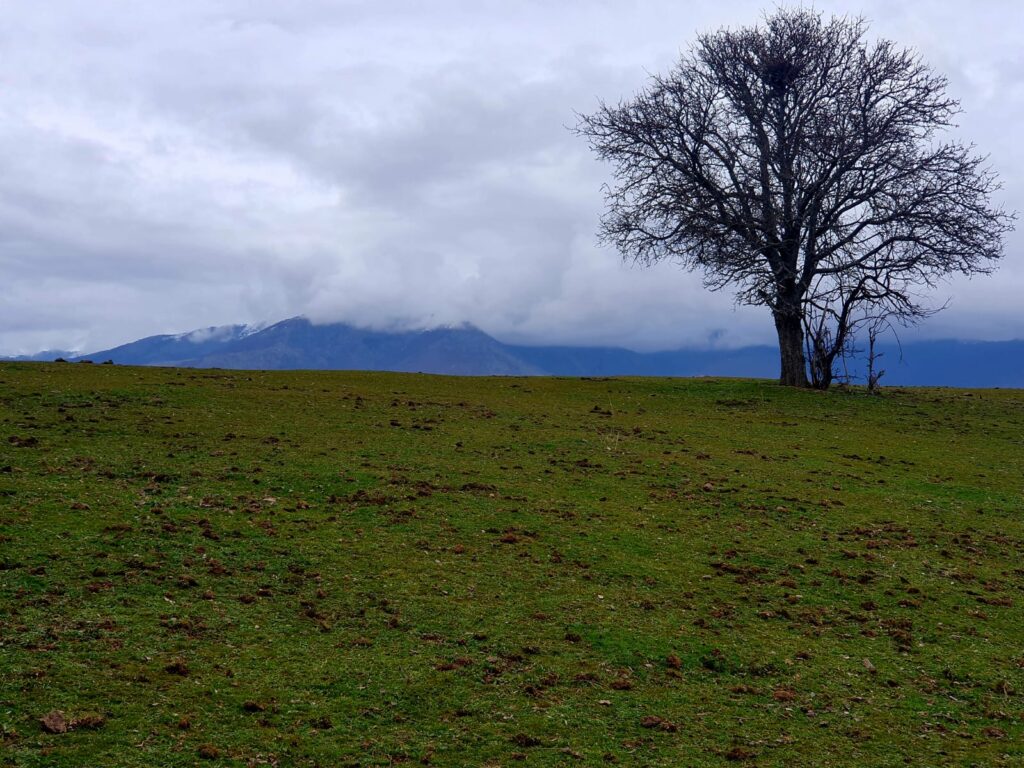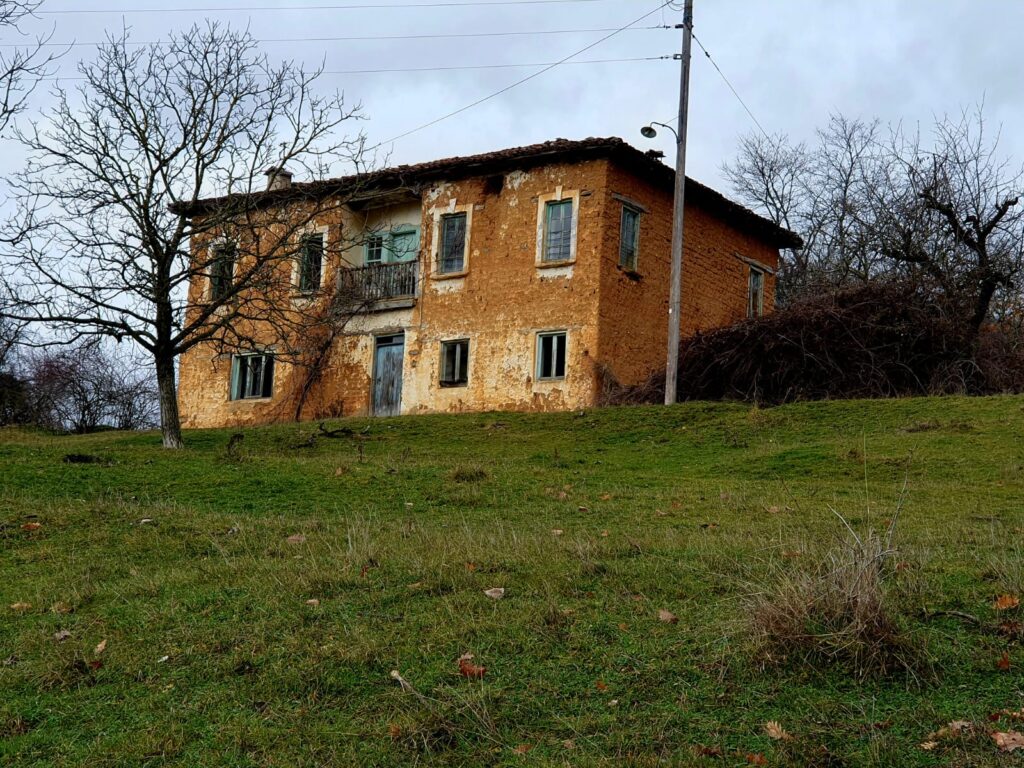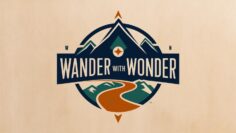On the road: Do you ever wonder what’s going on the other side ?
Trip to Greece and South Albania – Chapter 2
Driving along the lake’s southern shores brought me to a dead-end road through green thickets, until I reached the very end – no more road, due to proximity to the Albanian border. Borders that sharply divide natural resources like lakes, rivers, mountains, and seas have always fascinated me. I imagine a village on the other side of the lake, in North Macedonia, and wonder – is life there different from where I stand? Has it always been so? What did the people go through knowing that just nearby – maybe even within sight or reach – there’s a completely different world? History has sometimes brutally separated such places, and despite their physical closeness – life could be entirely different. Albania, for example, was a tightly closed dictatorship until about 30 years ago.
In moments like this, I always want to be on the other side – that village across the lake, that summit on the far side of the mountain, that valley beyond the ridge above me. And then I realize: maybe someone over there is thinking the exact same thing about where I’m standing.
At the end of that road, which if continued just a bit more would cross into Albania, stood a silent little fishing village by the lake. It was even quieter than the road, with only a few small fishing boats, a lone pier, some water birds, aquatic plants, and calm water. Around me, cows grazed peacefully on green grass – perhaps with the same serenity that defines the local villagers’ lives. I walked around a bit among the houses – I could count the people on one or two hands. Some homes were very old, with a few shops, three cafés, and two tavernas. It seemed like there were more visitors than residents at that moment. The tranquility was lovely, the silence perfect, and despite the gloomy weather lending the lake a dramatic look, I felt like I wanted to stay longer than planned.
The Greeks take pride in the giant white beans grown in northwestern Greece, and when I saw a dish of giant beans in tomato sauce on the menu at a local restaurant – of course I ordered it. The rich, smoky flavor didn’t disappoint, and there’s no doubt this village left me wanting more. But since it was already late afternoon and I had planned to cross into Albania and reach the city of Korçë, plus visit one more village – I decided to keep going.
A short 15-minute drive brought me to a truly special place – on the far side of a hill ridge, a quiet beach with a small parking lot and just a few cars. A narrow pedestrian bridge leads in about 10 minutes of walking to a tiny island – Agios Achillios. In the past, the island could only be reached by small boats, but with the bridge in place, it’s now walkable. Walking past a variety of water birds, I reached the small island, which reminded me of a village in India or the Caucasus Mountains of Georgia – almost no people, a few old, crumbling houses, one closed taverna (maybe because it’s winter), church ruins, a low hill with grazing cows, and stunning views of the snow-covered mountains surrounding the lake. The sky-mountains-vegetation combination was dramatic and unforgettable.


As sunset approached, the gray skies darkened, and the road toward Albania veered away from the lake and returned to forests, mountains, and streams, on roads entirely empty of cars.
Border crossings are usually buzzing with vehicles, people, and noise. But here, my phone said the turnoff to the crossing was 2.1 km away – and still, not a single soul on the dark road. It was surprising.
I crossed the border quickly. The dark road from the crossing to Korçë was short, and not much was visible except for a few signs, dimly lit villages, shops, and gas stations. When I reached the city, old, slightly crumbling buildings with closed shops below and quiet streets brought back memories of past visits to Albania.
The cold outside had driven people indoors, and on the dim, empty street, I found the small hotel. An elderly neighbor happened to be stepping out, saw me searching, realized I was another tourist, and showed me the entrance. I climbed the stairs to the room and set down my small bag filled mostly with warm clothes.
I went out for a stroll. A nearby hotel worker showed me how to get to the main street, and just like I always remembered Albania – despite the cold – the streets were full of people, and as always – the cafés were bustling. After exchanging some money, I found a spot to warm up with a hot drink and headed to bed after a long, experience-filled day.
The next morning, I woke up, and from the window I could feel the contrast between the cold outside and the warmth inside. People on the street were dressed warmly – coats, scarves, gloves – and so was I, ready for a hike in the surrounding mountains. When hiking for a few hours in wintry weather, it’s important to dress well.
I debated between two circular mountain trails around the city I last visited 7 or 8 years ago: one started from a high-altitude village, about 15 km long, and the other started from a village at the mountain’s base, climbed to a cross overlooking the valley, and returned through the next valley.
I drove to the first village, on a road that emptied of cars just past the city. The road climbed into the mountains, and the cold weather, along with overcast skies, began to show white traces of snow on the roadsides. The higher I climbed, the more snow had accumulated – until I realized hiking wouldn’t be possible in such conditions. At the same time, snow began falling, making it even harder – and more dangerous – to drive as snow began covering the road too.
The surrounding trees turned white, and the mix of snow-white, tree-green, and winter-gray became more and more dramatic. The higher the road climbed, the deeper the snow, and I realized that if I really wanted to hike in snow, cold, clouds, poor visibility, and slow, heavy steps – I could go on. But it was also a moment of realization: I don’t always need to push myself. I don’t always need to break personal records. I don’t always need to set expectations so high that they might pose a risk to myself or others. Many times in life, when I set a goal, I decided I must achieve it. But when reality throws challenges and hardship – I can stop and ask, “Is it really necessary to reach this goal, or is there an alternative?”
And in this case, there absolutely was.
/
